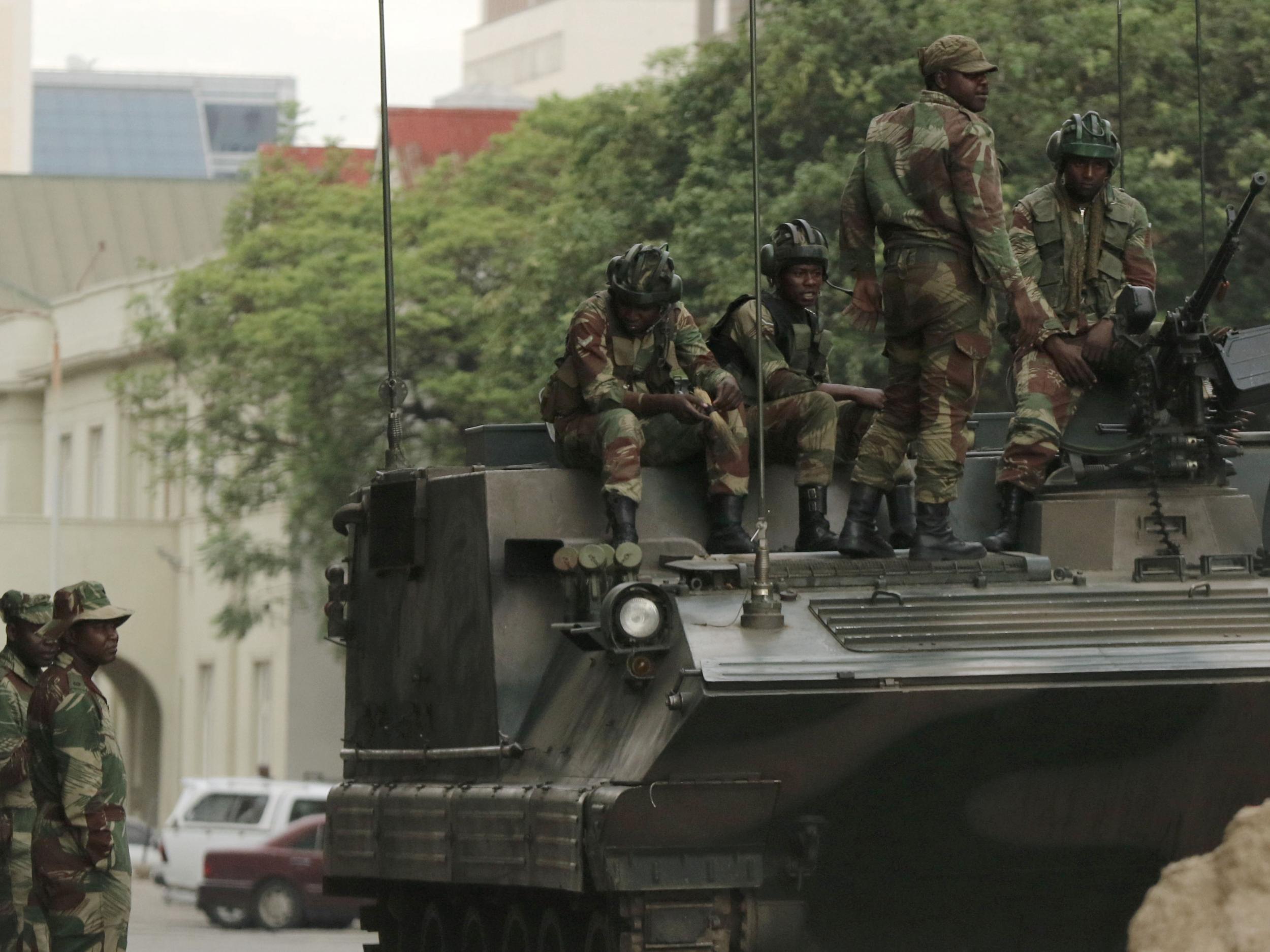Did China really give Zimbabwe’s military tacit approval to launch a coup?
Speculation swirls around possible Chinese involvement in takeover

Your support helps us to tell the story
From reproductive rights to climate change to Big Tech, The Independent is on the ground when the story is developing. Whether it's investigating the financials of Elon Musk's pro-Trump PAC or producing our latest documentary, 'The A Word', which shines a light on the American women fighting for reproductive rights, we know how important it is to parse out the facts from the messaging.
At such a critical moment in US history, we need reporters on the ground. Your donation allows us to keep sending journalists to speak to both sides of the story.
The Independent is trusted by Americans across the entire political spectrum. And unlike many other quality news outlets, we choose not to lock Americans out of our reporting and analysis with paywalls. We believe quality journalism should be available to everyone, paid for by those who can afford it.
Your support makes all the difference.A key architect of Zimbabwe's coup, General Constantine Chiwenga, flew to Beijing days before the military seized control of the country, it has emerged.
The visit has raised questions about possible Chinese state involvement in Wednesday's takeover, which saw the long-running authoritarian leader of the landlocked nation, Robert Mugabe, subjected to house arrest.
But how is China involved in Zimbabwe and did they support Mr Mugabe's downfall?
What has been reported?
Speculation was already swirling about the role of Beijing in the military putsch after it was reported the ousted vice-President, Emmerson Mnangagwa – now poised to assume leadership of the country – fled to the Chinese capital after he was sacked by Mr Mugabe.
Asked whether Gen Chiwenga briefed Chinese officials on any plans for a military takeover in Zimbabwe, the foreign ministry said the visit was a “normal military exchange”.
What is China’s involvement in Zimbabwe?
China has supported Mr Mugabe since the anti-colonial struggle of the 1970s.
The communist state is also Harare’s largest foreign investor, injecting large sums into the African nation's fragile economy in exchange for natural resources.
Beijing has been instrumental in funding infrastructure in the former British colony and last year pledged $46m (£35m) to help it build a 650-seat Parliament.
In 2015, a state-owned Chinese power company helped alleviate an electricity shortage in the country when it signed a $1.2bn (£910m) deal to expand the Hwange Thermal Power Station.
China also financed and built the Zimbabwe National Defence College, the country's first military higher education academy.
Did China approve the coup?
The experts think probably not. Dr Michael Jennings, head of the international development department at SOAS University of London said Gen Chiwenga's meeting with Chinese state officials was routine.
“These visits are fairly regular and I don't think it's very likely they played a role — I certainly don't think they would have given them permission for the coup to go ahead,” he told The Independent.
But he added: “If this was being planned a long time in advance then it may have been something that was mentioned.”
China had no interest in Zimbabwe's political model, he continued, it only cared about the country's stability.
“China will of course be interested — they have an interest in a stable transition and they will be concerned about potential for instability. One of the things they will want to see from the new regime when that's put in place straight away is some indication that things will carry on as normal and that there investments are safe — but you could say that about any country with investments.
"When people look at China and their investment in Africa, they're trying to build a narrative about nefarious Chinese attempts to influence these countries and speak to their politics, when actually if you look at many countries... Western governments are far bigger investors and yet no one ever looks at them and thinks that they are nefariously seeking to undermine the country.
"I think this is stemming from a narrative about Chinese involvement which is not entirely removed from reality but is perhaps overplaying the negative side of their role."
Miles Tendi, associate professor in African politics at Oxford University, said: "The Chinese government tends not to do this kind of stuff, [such as] backing the overthrow of governments. They've always been deeply concerned about not appearing colonial and not interfering in domestic affairs.
"They don't have a history of involvement in the same way that France, Britain or the US do."
Yet he also said if they were involved, we would never find out about it. "We are never going to get to the bottom of it," he said. "No country is ever going to admit it."
Join our commenting forum
Join thought-provoking conversations, follow other Independent readers and see their replies
Comments